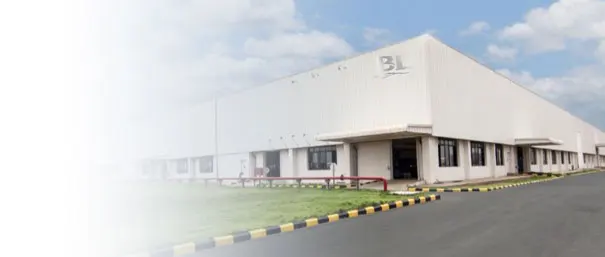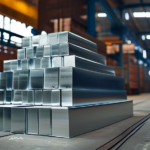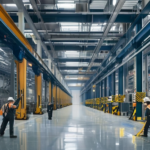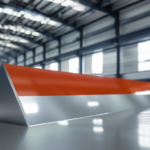Understanding the true cost of 304 stainless steel sheets, especially for a specific dimension like 1.5mm thickness, is a complex endeavor influenced by a multitude of dynamic factors. From raw material price fluctuations to intricate manufacturing processes and prevailing market trends, each element plays a critical role in determining the final price point. For businesses and individuals seeking to procure this versatile material, a comprehensive grasp of these cost drivers is essential for strategic purchasing and effective budget management. This article delves deep into the methodologies for calculating the cost of 1.5mm 304 stainless steel sheets, juxtaposing it against broader market dynamics to provide a clearer financial perspective for discerning buyers.


Key Factors Influencing 304 Stainless Steel Sheet Cost
The cost of 304 stainless steel is not static; it’s a dynamic variable influenced by several interconnected factors that demand careful consideration for any accurate cost estimation.
1. Raw Material Prices: The Foundation of Cost
The most significant determinant of stainless steel cost is the price of its constituent raw materials. 304 stainless steel is primarily an austenitic chromium-nickel alloy, meaning nickel and chromium are key components alongside iron.
- Nickel (Ni): Accounting for 8-10.5% of 304 stainless steel by weight, nickel is a primary cost driver. Its price is highly volatile, influenced by global supply from major producers (such as Indonesia, the Philippines, and Russia) and demand from various industries beyond steel, including electric vehicle batteries and electronics. Significant shifts in nickel prices can have an almost immediate impact on the cost of stainless steel.
- Chromium (Cr): Comprising 18-20% of 304, chromium provides the essential corrosion resistance and lustrous appearance. While less volatile than nickel, its price still significantly impacts the overall cost, especially considering its higher percentage by weight.
- Iron (Fe) & Scrap Steel: The base material, iron ore prices, and the availability and cost of stainless steel scrap also play a crucial role. Utilizing recycled scrap helps manage costs, reduces the reliance on virgin materials, and aligns with sustainable manufacturing practices.
- Other Alloys: Trace amounts of manganese, silicon, carbon, phosphorus, and sulfur are added to fine-tune the alloy’s mechanical properties and enhance its workability, subtly contributing to the overall production cost.
2. Manufacturing and Processing Costs: From Ore to Sheet
Once raw materials are sourced, they undergo a series of energy-intensive and precise processing stages, each adding to the final cost:
- Melting & Casting: Raw materials are melted in electric arc furnaces and then cast into large slabs or billets. This step consumes significant amounts of electricity.
- Hot Rolling: The slabs are heated and passed through rollers to reduce their thickness and form hot-rolled coils.
- Cold Rolling: For precise dimensions and superior surface finishes required for 1.5mm 304 stainless steel sheets, hot-rolled coils undergo cold rolling. This process, performed at room temperature, improves mechanical properties and achieves tighter tolerances. It is a critical step for producing high-quality stainless steel sheets and plates.
- Annealing & Pickling: Heat treatment (annealing) restores ductility and removes internal stresses, followed by acid cleaning (pickling) to remove surface scale and impurities, ensuring the material’s full corrosion resistance.
- Finishing: Applying various surface finishes (e.g., 2B, BA, No.4, Hairline, Mirror) adds to the cost, with highly polished finishes typically being more expensive due to additional mechanical processing.
- Slitting & Shearing: The final stage involves cutting the coil into specific sheet sizes and dimensions, including precision cuts for standard or custom sizes of 1.5mm 304 stainless steel sheets.
3. Thickness and Dimensions: The 1.5mm Specific Considerations
While thicker sheets naturally require more material, the cost per unit area can sometimes be higher for thinner sheets like 1.5mm due to the increased precision and specialized handling required during cold rolling and finishing. 1.5mm thickness is a very common gauge for applications requiring moderate strength, excellent formability, and good aesthetics, such as in kitchen equipment, architectural cladding, decorative panels, and various components in the automotive and manufacturing sectors. Its widespread use ensures relatively stable production volumes, but also subjects it to significant demand-driven price fluctuations.
4. Order Volume and Customization: Economies of Scale
As with most industrial products, larger order volumes typically lead to lower per-unit costs due to economies of scale in manufacturing, reduced setup times, and optimized logistics. Conversely, small orders or highly customized sizes and specifications may incur a premium. Companies like BaoLi Iron & Steel Co.,Ltd understand this dynamic and excel in providing customized steel solutions. Our ability to tailor steel dimensions, specifications, and performance to precise client requirements ensures that even unique needs are met with high quality, albeit potentially at a slightly different cost structure compared to standard bulk orders. This flexibility is a testament to our commitment to client success and project specific demands.
5. Logistics, Freight, and Supplier Location: The Delivery Factor
Beyond the ex-factory price, shipping costs, import duties, and local taxes can add substantially to the final landed cost. The geographical distance between the steel mill and the end-user, along with prevailing freight market conditions (e.g., container availability, fuel prices, geopolitical risks), directly impacts the overall expense. Sourcing from a global supplier with efficient logistics, such as BaoLi Iron & Steel, which offers comprehensive service from production to transportation and meticulous contract management, can significantly optimize these crucial elements of cost for international clients.
Understanding Market Trends and Their Impact on Pricing
Beyond the inherent manufacturing costs, broader market dynamics exert a profound and often rapid influence on the price of 304 stainless steel sheets. These trends must be closely monitored for accurate forecasting.
- Global Supply and Demand: Economic growth in major industrial sectors (construction, automotive, manufacturing, energy) directly drives demand for steel products. Oversupply can depress prices, while shortages (e.g., due to production cuts, natural disasters, or trade disputes) can cause rapid price spikes. For instance, increased demand for alternative materials like galvanized steel or carbon steel in other sectors might indirectly affect stainless steel production capacities if resources are reallocated, impacting its supply.
- Economic Indicators: Macroeconomic factors such as GDP growth rates, industrial output indices, inflation rates, and interest rates in major economies significantly influence the overall demand for steel products, including all types of stainless steel. A robust global economy generally supports higher steel prices.
- Currency Exchange Rates: As raw materials for stainless steel are often traded globally in USD, fluctuations in exchange rates between the local currency and the US dollar can directly affect import costs for manufacturers and ultimately the price for end-users, especially for international transactions.
- Trade Policies & Tariffs: Government policies, such as tariffs on imported steel or raw materials, anti-dumping duties, and new trade agreements, can introduce significant cost variations and market distortions. Keeping abreast of these policy changes is vital for accurate cost forecasting and risk management.
Calculating the Cost of 1.5mm 304 Stainless Steel Sheets
To accurately estimate the cost of 1.5mm 304 stainless steel sheets, you typically consider either the cost per unit weight (e.g., USD/kg or USD/lb) or the cost per individual sheet.
Method 1: Cost Per Unit Weight (Most Common)
This is the most prevalent way suppliers quote prices for stainless steel. To calculate, you need the density of 304 stainless steel, which is approximately 7.93 grams per cubic centimeter (g/cm³) or 7930 kilograms per cubic meter (kg/m³).
Weight (kg) = Length (m) × Width (m) × Thickness (m) × Density (kg/m³)
For a 1.5mm thick sheet, the weight per square meter can be calculated as:
Weight per square meter = 1 m × 1 m × 0.0015 m × 7930 kg/m³ = 11.895 kg/m²
Once you have determined the total weight of the required sheets, simply multiply it by the quoted price per kilogram:
Total Material Cost = Total Weight (kg) × Price per kg (USD/kg)
Method 2: Cost Per Sheet (For Standard Sizes)
Some suppliers, especially for common sizes like 4’x8’ (1219mm x 2438mm), may quote a direct price per sheet. In such cases, the calculation is straightforward:
Total Cost = Number of Sheets Required × Price per Sheet
Always request a detailed quote that breaks down the material cost, processing fees, packaging, and shipping charges. A transparent supplier will provide this information, helping you make a truly informed and cost-effective decision.
Partnering with a Reliable Steel Manufacturer: BaoLi Iron & Steel Co.,Ltd
In the dynamic and often challenging landscape of steel procurement, choosing a trustworthy and capable supplier is paramount to project success and cost efficiency. BaoLi Iron & Steel Co.,Ltd stands as a leading Chinese steel manufacturer, committed to providing premium steel products and comprehensive solutions to a global clientele. We specialize in foundational steel types including stainless steel (such as bright tubes and plates), carbon steel, and galvanized steel. Our extensive range covers diverse profiles from plates and wires to pipes, bars, and coils, ensuring we can meet the varied demands of industries like construction, automotive, and general manufacturing. Whether you require precise 1.5mm 304 stainless steel sheets for critical applications or other specialized carbon steel varieties, BaoLi Iron & Steel is equipped to fulfill your specific requirements with excellence.
Our core capabilities are meticulously designed to empower your projects and streamline your procurement process:
- Customization Expertise: We offer flexible and tailored solutions, enabling us to customize steel dimensions, specifications, and performance characteristics to align perfectly with your unique project demands and individual preferences.
- Unparalleled Technical Support: Our experienced and professional team provides invaluable technical guidance on steel selection, application best practices, and material properties, ensuring you always make the most informed choice for your specific engineering or construction needs.
- Rigorous Quality Assurance: Adhering to stringent quality control systems throughout our production processes, we guarantee that all products comply with the highest international standards. Our unwavering pursuit of 100% customer satisfaction drives our commitment to excellence, from the raw material stage to the final dispatch.
- Seamless Global Service: With a robust global footprint, we provide end-to-end service, encompassing efficient production, seamless international transportation, and meticulous contract management, making global steel procurement remarkably effortless for our clients worldwide.
At BaoLi Iron & Steel, our philosophy is profoundly customer-centric. We focus intently on your requirements, leveraging continuous innovation and professional service to contribute directly to your project’s success. Our dedication to industry expertise and a highly trained team underpins our reputation for delivering high-quality steel products with utmost professionalism and reliability.
Conclusion
Calculating the cost of 1.5mm 304 stainless steel sheets requires a nuanced and comprehensive understanding of both its intrinsic cost drivers and the dynamic external market influences. By meticulously analyzing fluctuating raw material prices, the complexities of manufacturing processes, and prevailing global market trends, buyers can gain a far more accurate and strategic cost estimation. Partnering with a reputable and experienced manufacturer like BaoLi Iron & Steel Co.,Ltd not only ensures access to high-quality stainless steel products tailored to your needs but also provides the invaluable benefit of expert technical support, flexible customization options, and reliable global logistics. This holistic approach empowers you to make well-informed purchasing decisions and ultimately secure the best value for your significant investment in quality steel.
Key Specifications
- Standards and grades
- Dimensions and tolerances
- Surface finish
- Certificates (MTC)
Applications
Construction, machinery, energy and general fabrication — match material and finish to the operating environment.







